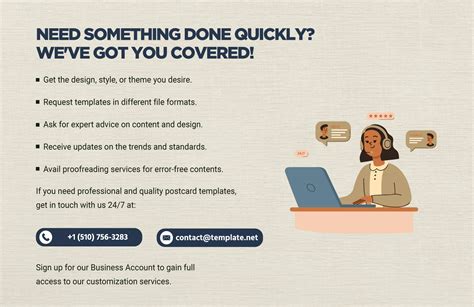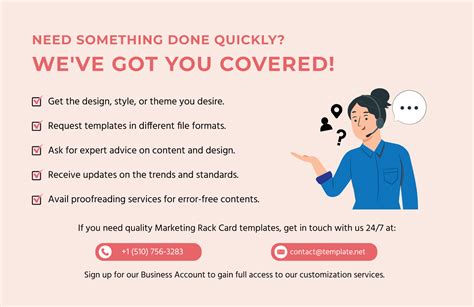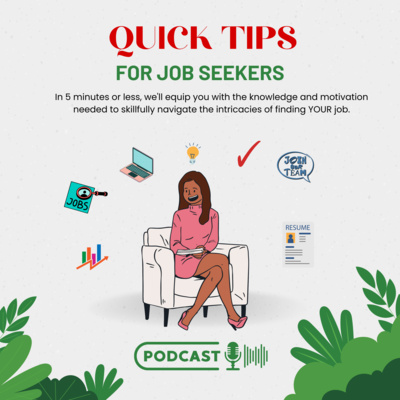In today’s fast-paced and ever-changing world, mastering flexibility is crucial for personal and professional growth. The ability to adapt to new situations, overcome challenges, and embrace change is what sets individuals apart in their careers and lives. This article explores the top keywords that can help enhance your adaptability skills, providing you with practical insights on how to navigate uncertainty with ease. From developing resilience to fostering innovation, each of these traits will empower you to stay agile, versatile, and open-minded. By honing these key skills, you’ll be better equipped to thrive in any environment and continuously grow in your personal and professional endeavors.
Discover more about this topic with rosawblog.com in detail.
1. Keyword: Adaptability
Adaptability is the foundation of flexibility, allowing you to adjust to new environments, challenges, and expectations with ease. It involves being open to change and willing to modify your approach when circumstances shift. In both personal and professional settings, adaptability is essential for managing unexpected situations, whether it’s a new role, a sudden change in project scope, or evolving market demands. People who are adaptable tend to remain calm under pressure and quickly find solutions to obstacles, making them valuable assets in any team.
To enhance your adaptability, focus on cultivating a growth mindset and staying curious about new experiences. Embrace change as an opportunity to learn, rather than something to fear. By practicing adaptability, you’ll be better equipped to handle uncertainty and thrive in dynamic environments, whether you’re navigating career transitions or adapting to new technologies. Developing this skill ensures that you’re always ready to face challenges head-on, making you more resilient and capable of growth in the face of adversity.

2. Keyword: Resilience
Resilience is the ability to bounce back from adversity, stress, and challenges while maintaining a positive outlook. It’s a crucial skill in today’s rapidly changing world, enabling individuals to recover from setbacks and continue moving forward. Resilient people are not immune to difficulties, but they approach them with determination and persistence, viewing obstacles as opportunities to learn and grow rather than as permanent roadblocks.
Building resilience requires mental and emotional strength, which can be developed through practice and experience. Key strategies for enhancing resilience include maintaining a strong support network, focusing on solutions rather than problems, and practicing self-care to manage stress. Additionally, learning from past experiences and understanding that setbacks are a normal part of life can foster a more resilient mindset.
Resilience goes hand in hand with adaptability. While adaptability allows you to adjust to new situations, resilience ensures you can endure and thrive through the toughest challenges. By cultivating resilience, you’ll be better equipped to navigate personal and professional obstacles with confidence. This skill will not only help you persevere through hardship but also emerge stronger and more capable in the face of future challenges.

3. Keyword: Agility
Agility is the ability to move quickly and easily, both physically and mentally, allowing you to adapt swiftly to changing circumstances. In the context of personal and professional development, agility refers to being able to pivot and make rapid decisions in response to new information or unexpected challenges. This skill is essential in today’s fast-paced environment, where the ability to adjust plans or strategies at a moment’s notice can make the difference between success and failure.
Being agile means staying alert, responsive, and proactive. It involves thinking on your feet and embracing flexibility without losing focus on your goals. To develop agility, practice quick decision-making, learn to prioritize tasks effectively, and stay open to new ideas or approaches. The more agile you become, the better equipped you’ll be to handle dynamic situations and seize opportunities as they arise.
By mastering agility, you can maintain momentum even when things don’t go as planned, ensuring that you’re always ready to pivot and find alternative paths to success.

4. Keyword: Versatility
Versatility is the ability to adapt to a wide range of tasks, roles, or environments with ease. It reflects a person’s capability to handle multiple responsibilities and switch between different functions smoothly. In today’s ever-evolving world, versatility is a highly valued skill, as it enables individuals to contribute in various ways and excel in different settings.
A versatile individual is often comfortable stepping outside of their primary role, learning new skills, and tackling unfamiliar challenges. This flexibility makes them an asset in any team or organization, as they can fill in gaps and provide support wherever needed. To enhance your versatility, develop a broad skill set and stay open to cross-functional learning. Embrace opportunities to step out of your comfort zone and take on new challenges.
By cultivating versatility, you not only become more adaptable to change but also increase your value in the workplace. Whether you’re adjusting to new responsibilities or expanding your expertise, versatility ensures that you’re always ready to contribute meaningfully in any situation.
5. Keyword: Open-mindedness
Open-mindedness is the willingness to consider new ideas, perspectives, and approaches without preconceived judgments. It allows you to embrace diversity in thought and experience, making you more adaptable in complex, dynamic environments. In both personal and professional settings, being open-minded fosters creativity and collaboration, as it enables you to listen to others’ viewpoints and integrate new insights into your decision-making process.
To cultivate open-mindedness, practice active listening and approach situations with curiosity rather than judgment. Challenge your own assumptions and be willing to change your mind when presented with new evidence or perspectives. Open-mindedness also requires a sense of humility, recognizing that no single perspective holds all the answers.
By developing open-mindedness, you not only expand your own understanding but also become more adaptable to change. This quality allows you to remain flexible and innovative, as you are always open to exploring new solutions and evolving your thinking in response to changing circumstances.
6. Keyword: Problem-solving
Problem-solving is a critical skill that involves identifying, analyzing, and finding solutions to challenges or obstacles. It requires a systematic approach to understanding issues, exploring potential solutions, and implementing effective strategies. Strong problem-solving abilities enable individuals to tackle difficulties with confidence and creativity, making them valuable assets in any setting.
Effective problem-solving starts with a clear understanding of the problem at hand. This involves gathering relevant information, defining the issue, and identifying potential root causes. Next, brainstorming and evaluating possible solutions can lead to innovative and practical approaches. Implementing the chosen solution involves planning and executing the necessary steps, followed by monitoring the outcomes to ensure the problem is resolved.
Developing problem-solving skills involves practicing critical thinking, remaining persistent in the face of challenges, and learning from both successes and failures. By honing this skill, you enhance your ability to navigate complex situations and contribute to finding effective solutions. Strong problem-solving skills not only improve your adaptability but also empower you to handle unexpected issues with agility and confidence.
7. Keyword: Innovation
Innovation is the process of introducing new ideas, methods, or products that add value and drive progress. It involves thinking creatively and breaking away from traditional approaches to find novel solutions to problems. In a rapidly changing world, innovation is essential for staying competitive and achieving long-term success. It enables individuals and organizations to adapt to new challenges and seize emerging opportunities.
To foster innovation, cultivate a mindset that encourages experimentation and embraces risk. Create an environment where creative thinking is supported, and diverse perspectives are valued. Encourage collaboration and open dialogue, as new ideas often emerge from the exchange of different viewpoints. Additionally, stay informed about industry trends and technological advancements to inspire and inform your innovative efforts.
Innovation is not limited to grand, disruptive changes but also includes incremental improvements that enhance existing processes or products. By focusing on continuous improvement and remaining open to new possibilities, you can drive progress and maintain relevance in an ever-evolving landscape. Developing innovation skills ensures that you are prepared to lead and adapt, transforming challenges into opportunities for growth and success.
8. Keyword: Collaboration
Collaboration is the process of working together with others to achieve common goals and solve problems more effectively than individuals could alone. It involves leveraging diverse skills, perspectives, and expertise to create solutions that are greater than the sum of their parts. Successful collaboration fosters a sense of teamwork, enhances creativity, and drives productivity.
Effective collaboration begins with clear communication and mutual respect. It’s essential to establish shared goals and ensure that all team members understand their roles and responsibilities. Building a collaborative environment involves creating opportunities for open dialogue, actively listening to others, and valuing each contribution. Tools and technologies that facilitate collaboration, such as project management software and communication platforms, can also enhance teamwork and streamline processes.
To improve your collaboration skills, practice empathy and be open to different viewpoints. Encourage a culture of trust and support, where feedback is constructive and contributions are recognized. By fostering strong collaborative relationships, you not only enhance your adaptability but also contribute to a more innovative and effective team, capable of navigating complex challenges and achieving shared success.
9. Keyword: Continuous Learning
Continuous learning is the ongoing, voluntary, and self-motivated pursuit of knowledge and skills throughout one’s life. It involves actively seeking opportunities to expand your understanding and stay current with developments in your field. In an ever-evolving world, continuous learning is essential for maintaining adaptability and staying competitive.
Embracing continuous learning means recognizing that knowledge is constantly advancing and being open to acquiring new skills and insights. This approach helps you remain relevant in your career, adapt to technological changes, and address emerging challenges effectively. It can take many forms, including formal education, professional development courses, workshops, reading industry publications, or engaging in self-directed learning projects.
To cultivate a mindset of continuous learning, set aside time for personal and professional development, and seek out resources that align with your interests and goals. Stay curious and proactive about exploring new topics and skills. Engage with mentors and peers to share knowledge and gain diverse perspectives.
By prioritizing continuous learning, you enhance your ability to adapt to change, innovate, and solve problems creatively. This commitment to growth ensures that you are always evolving and improving, positioning yourself for success in an ever-changing landscape.
Mastering flexibility through key skills like adaptability, resilience, agility, versatility, open-mindedness, problem-solving, innovation, collaboration, and continuous learning equips you to navigate challenges and seize opportunities effectively. By developing these traits, you enhance your ability to thrive in dynamic environments, contribute meaningfully to your teams, and achieve both personal and professional success. Embrace these skills to stay ahead and continuously grow.
rosawblog.com
